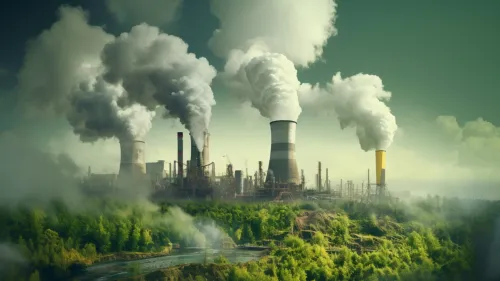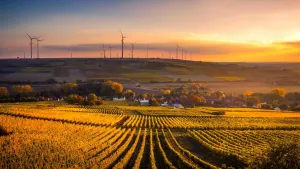
Power demand surge makes 2050 net-zero goals unattainable
Energy investment must grow to 3.35% within the next decade to attain the goal by 2060.
The surge in global power demand and geopolitical tensions has pushed the net-zero goals beyond 2050, with the world now on track for 2.6°C of global warming, according to Wood Mackenzie.
In its new “Energy Transition Outlook 2025-2026” report, Wood Mackenzie said that achieving a 2°C warming limit would require $4.3t in annual investment between 2025-2060 and reaching net zero emissions by around 2060. Energy sector investment, specifically, must grow from 2.5% of global GDP today to 3.35% within the next decade.
“As power demand surges due to the expansion of technologies such as AI and electrification, what was once a mostly aspirational shift towards decarbonisation is now facing the hard trade-offs of scale, system integration, capital allocation and geopolitics,” said Prakash Sharma, vice president, head of scenarios and technologies for Wood Mackenzie.
“The share of solar and wind in global power supply has grown from 5% to 20% over the past decade and the surge is expected to continue. But accelerating from deployment to a deeply decarbonised, resilient energy system is proving far more complex than simply adding megawatts,” Sharma added.
The report noted that no major economy remains on track to meet its 2030 targets.
Meanwhile, electricity demand is expected to expand from one-fifth of final energy consumption today to over half by 2050 under the net-zero scenario. Variable renewables will surge from 20% of generation today to 60% by 2050, with solar alone doubling by 2030 and overtaking coal by 2034.
However, Wood Mackenzie sees variable renewables to reach their practical ceiling at 68% due to grid stability and storage limitations. Dispatchable fossil fuels will also remain essential as coal continues powering developing economies, whilst gas turbines provide critical backup where renewable infrastructure struggles with massive new load.
The analysis noted that emerging advanced technologies are essential for comprehensive decarbonisation where electrification falls short. In net-zero pathways, these technologies can deliver 20% to 30% of total emissions reductions.
“Viewing the energy system as interconnected is more critical than ever because electrification, flexibility and decarbonisation link markets that once stood apart,” said Sharma.
“Oil, gas, coal and power can no longer operate in silos: EV adoption shifts electricity demand, gas shortages ripple into power and heating, and investment in shared infrastructure like transmission lines, pipelines and storage affects multiple sectors at once,” he added.













